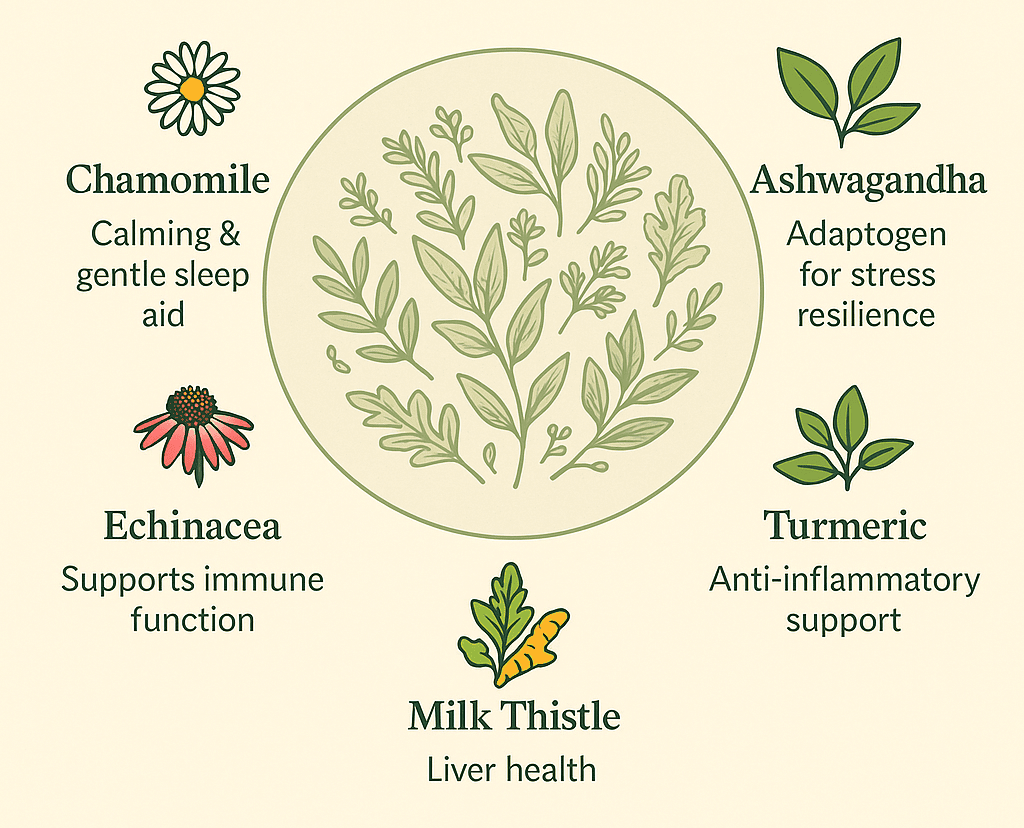Herbal Solutions
Your Journey to a Fulfilling Life
Herbal Solutions
Your Journey to a Fulfilling Life
Herbal Solutions
What is an herbalist?
What is an herbalist?
A herbalist is someone who studies, grows, and works with plants (herbs) to help people use them for health and wellness.
They use herbs to:
What does a herbalist DO?
What does a herbalist DO?
Depending on their training, an herbalist might:
types of herbalists
types of herbalists
Are herbalists medical doctors?
Are herbalists medical doctors?
Simple Definition
“A herbalist is someone trained to use plants as gentle tools for supporting health and well-being in a natural, holistic way”
Are herbalists medical doctors?
Are herbalists medical doctors?
Simple Definition
“A herbalist is someone trained to use plants as gentle tools for supporting health and well-being in a natural, holistic way”
How effective are herbs?
Effectiveness depends on:
MODERN Evidence
Many herbs used for centuries now have supportive modern research.
Herbs can be very effective, especially for mild to moderate imbalances, prevention, and supporting the body’s self-healing. But top herbal teachers always remind people:
“Herbs are not magic pills — they work best when you also nourish yourself with good food, rest, clean water, and emotional balance.”

Who were the first to use herbs?
Herbalism is the oldest form of medicine.
Long before there were pharmacies, people everywhere turned to local plants for healing.
